Table of Contents Show
If you’re new to RVing, you may feel overwhelmed by all the options out there. Motorhomes, fifth wheels, travel trailers, oh my! Things get even more confusing when you realize there are not only different types of RVs but even different ways to attach said RVs. So, to clear things up a bit, we’re going to discuss the difference between the 5th wheel vs. a gooseneck so you can get the right coupler for your 5th wheel trailer.
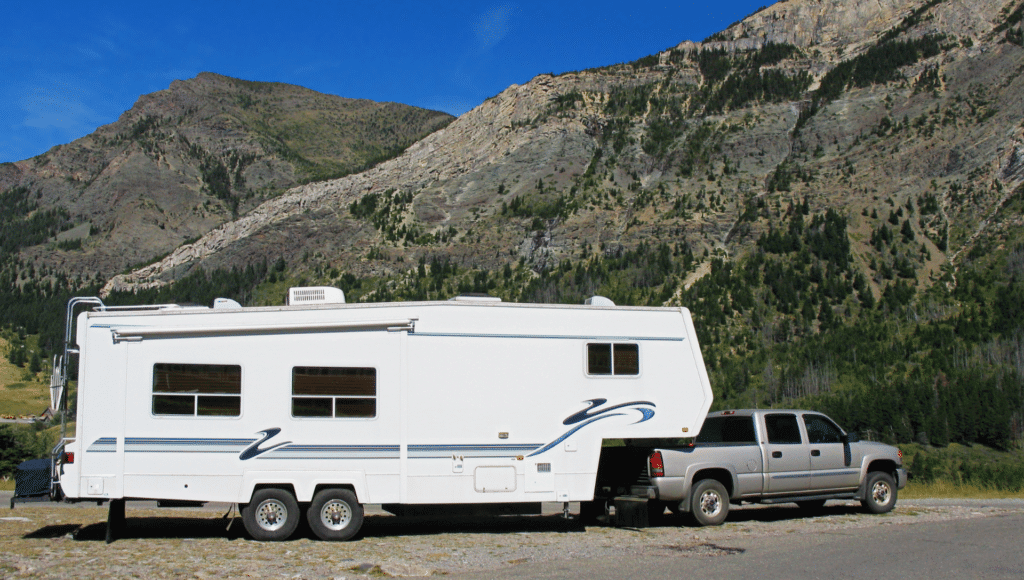
5th Wheel vs. Gooseneck: What’s the Difference?
A 5th wheel hitch and a gooseneck hitch are two types of couplers used to haul large trailers, including 5th wheel trailers.
But even though 5th wheel trailers are called 5th wheels, we can haul them using a gooseneck hitch with an adapter (although it may not be the best choice). Where did the Term “Fifth Wheel” Come From?
A fifth wheel hitch uses jaws and a kingpin to connect to your trailer. The gooseneck has a ball and coupler.
Another difference is that a fifth wheel while offering more stability and improved recreational towing, is more invasive to install and takes up more space in the bed of your truck than a gooseneck.
The gooseneck’s small design is minimally invasive and cheaper to purchase and install; however, it usually isn’t the go-to for towing RVs. Gooseneck couplers are more often used for commercial towing or livestock trailers.
Features of a 5th Wheel Hitch
A 5th wheel hitch is installed in the bed of your truck and connects to your trailer using a kingpin, which is a pin that faces downward. T
here is additional security because of the metal jaws or locking bar that secure the kingpin in place. The hitch also has a plate that allows for pivoting to gain range of motion for turning with the trailer.
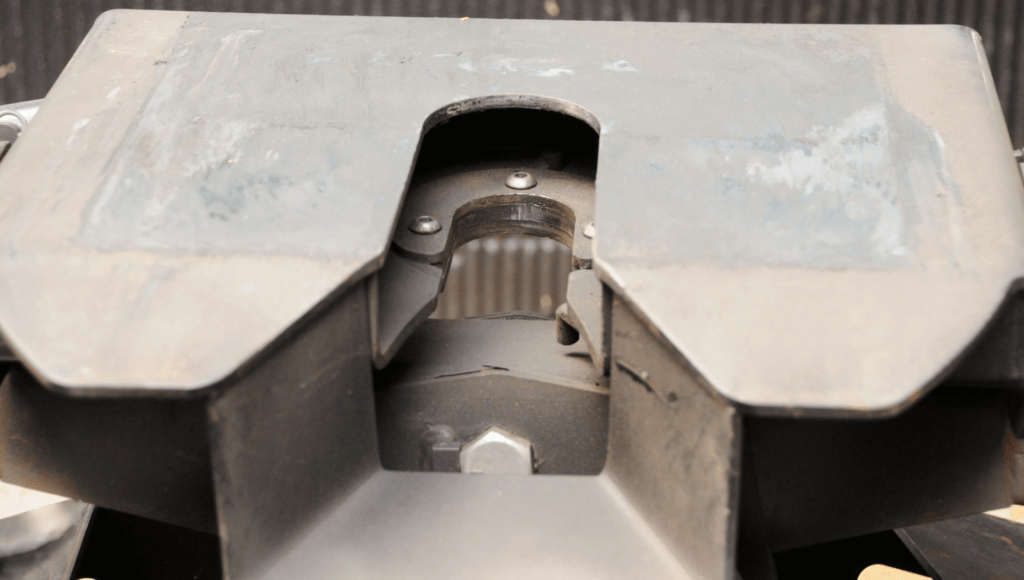
Advantages of 5th Wheel Hitches
One of the benefits of a 5th wheel hitch is that it offers a smoother ride than a gooseneck. It also allows you to tow up to 25,0000-30,0000 pounds.
A 5th wheel hitch also gives more flexibility for trucks with shorter beds by using sliding options. It can be converted to a gooseneck.
We typically consider a 5th wheel hitch to be the best hitch for towing an RV.
Disadvantages of 5th Wheel Hitches
Disadvantages of the 5th wheel vs. gooseneck include that the 5th wheel hitch is heavier and more challenging to move and assemble.
Additionally, it comes with a higher price tag than a gooseneck. It also requires permanently installed base rails in the truck, and it is challenging to move after installing.
Features of a Gooseneck Hitch
A gooseneck hitch is also installed in the truck bed. It involves a hitch ball that the gooseneck trailer attaches to instead. It takes up less space in the truck’s bed because only the ball is in the bed, and you install the main body underneath.
Gooseneck hitches are more commonly used for livestock trailers and flatbed trailers or commercial towing.
Advantages of Gooseneck Hitches
When considering a 5th wheel vs. gooseneck hitch, one area the gooseneck comes out ahead is that it can usually tow a heavier trailer. It also has more stability for heavy loads because of better weight distribution. A gooseneck is less invasive and takes up less room in the truck’s bed than a 5th wheel hitch.
The gooseneck is also lighter, easy to set up and operate, and simple to connect to. You also have the option to convert to a 5th wheel so you can get the best of both worlds.
Disadvantages of Gooseneck Hitches
A downside of the gooseneck hitch is that it is less stable when towing tall trailers (such as 5th wheel RVs).
Additionally, it doesn’t have as smooth or quiet of a ride. And last, installation involves sawing a hole in the truck bed.
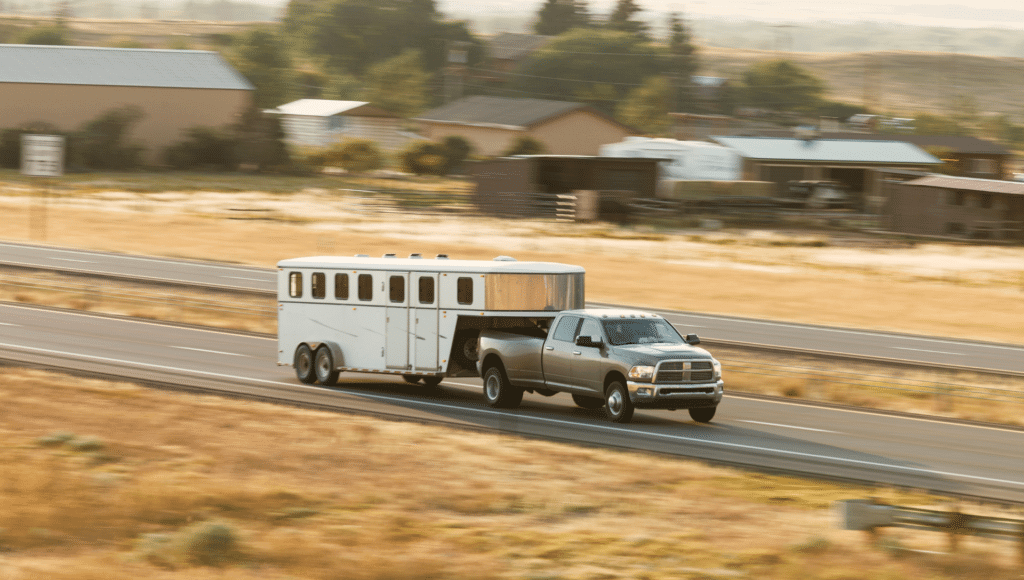
5th Wheel vs. Gooseneck Hitch: Which is Better?
The bottom line on if a 5th wheel vs. gooseneck is better comes down to the purpose. If you are looking to have the flexibility to haul livestock or commercial trailers and tow a fifth wheel, the gooseneck is better. But for most RVers, the 5th wheel hitch is the better choice.
Conclusion
Now that you understand the differences between a 5th wheel and a gooseneck, we hope you feel more confident choosing the right hitch for your needs. If you’re looking to get into RVing, the 5th wheel is probably the way to go. But if you do various kinds of towing, a gooseneck with a 5th wheel adapter might be better for you.
Make sure whatever you choose works properly with your trailer, and if you don’t feel confident installing it, hire a professional to do the job. Happy travels!


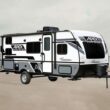

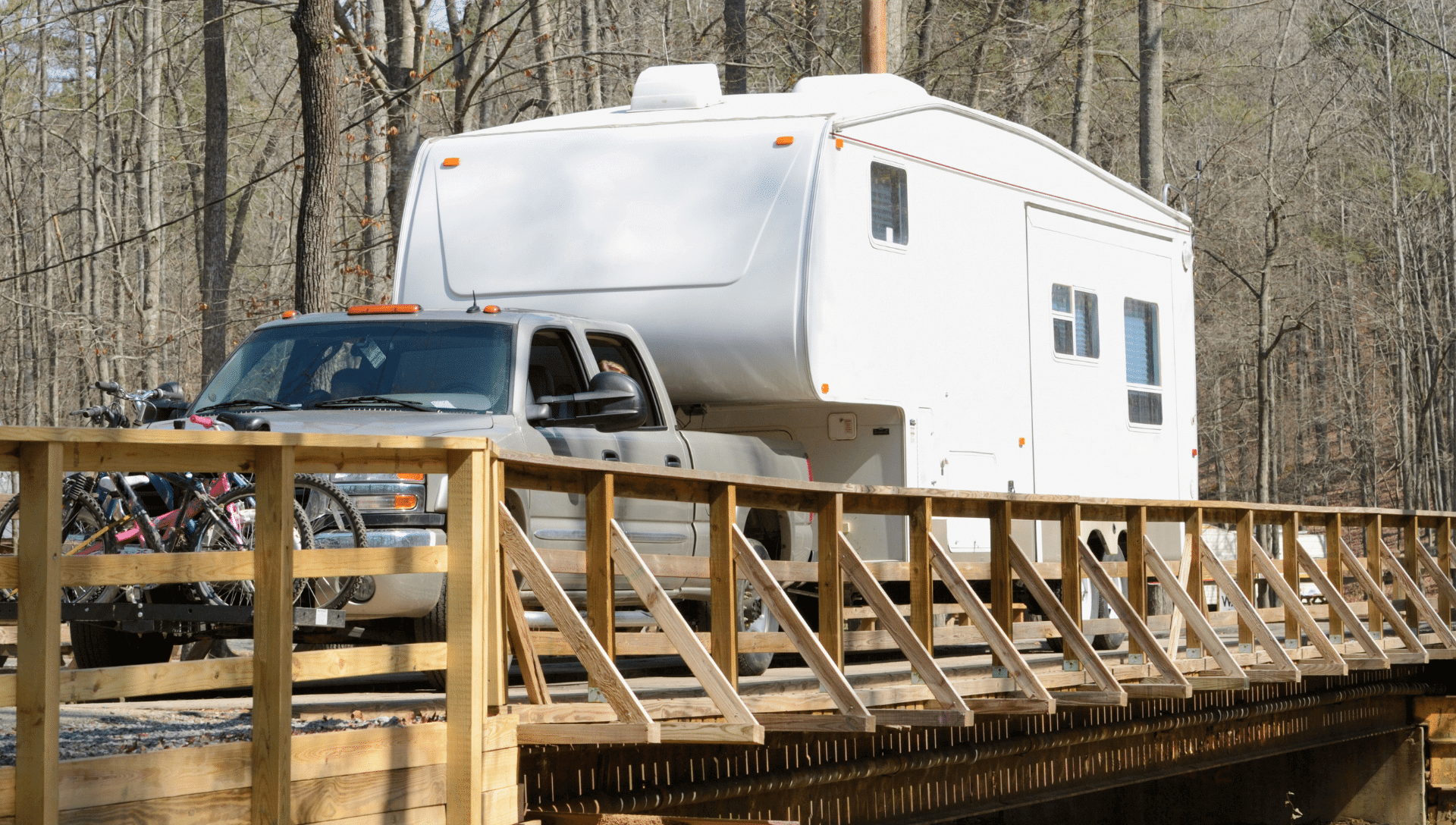
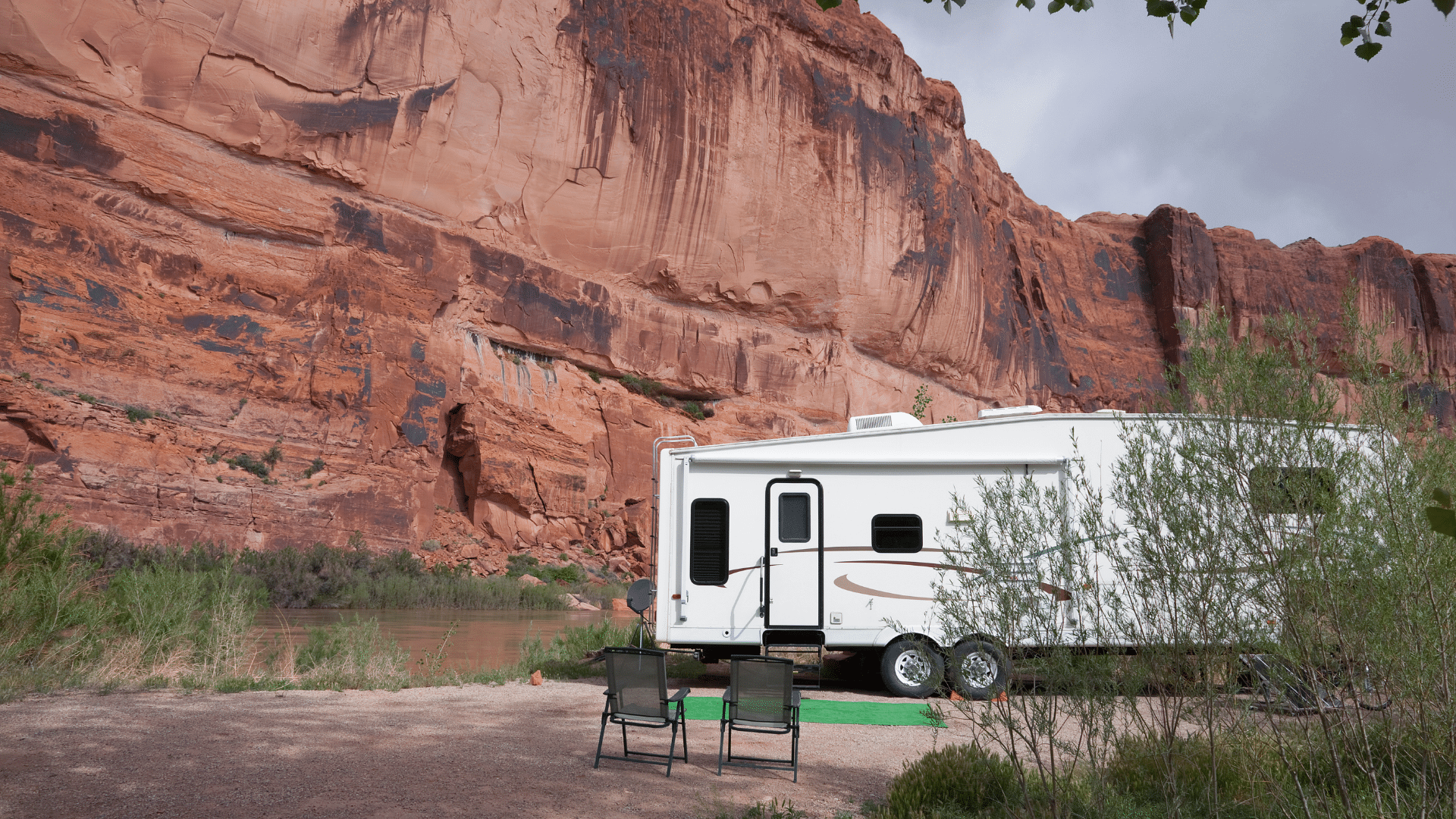
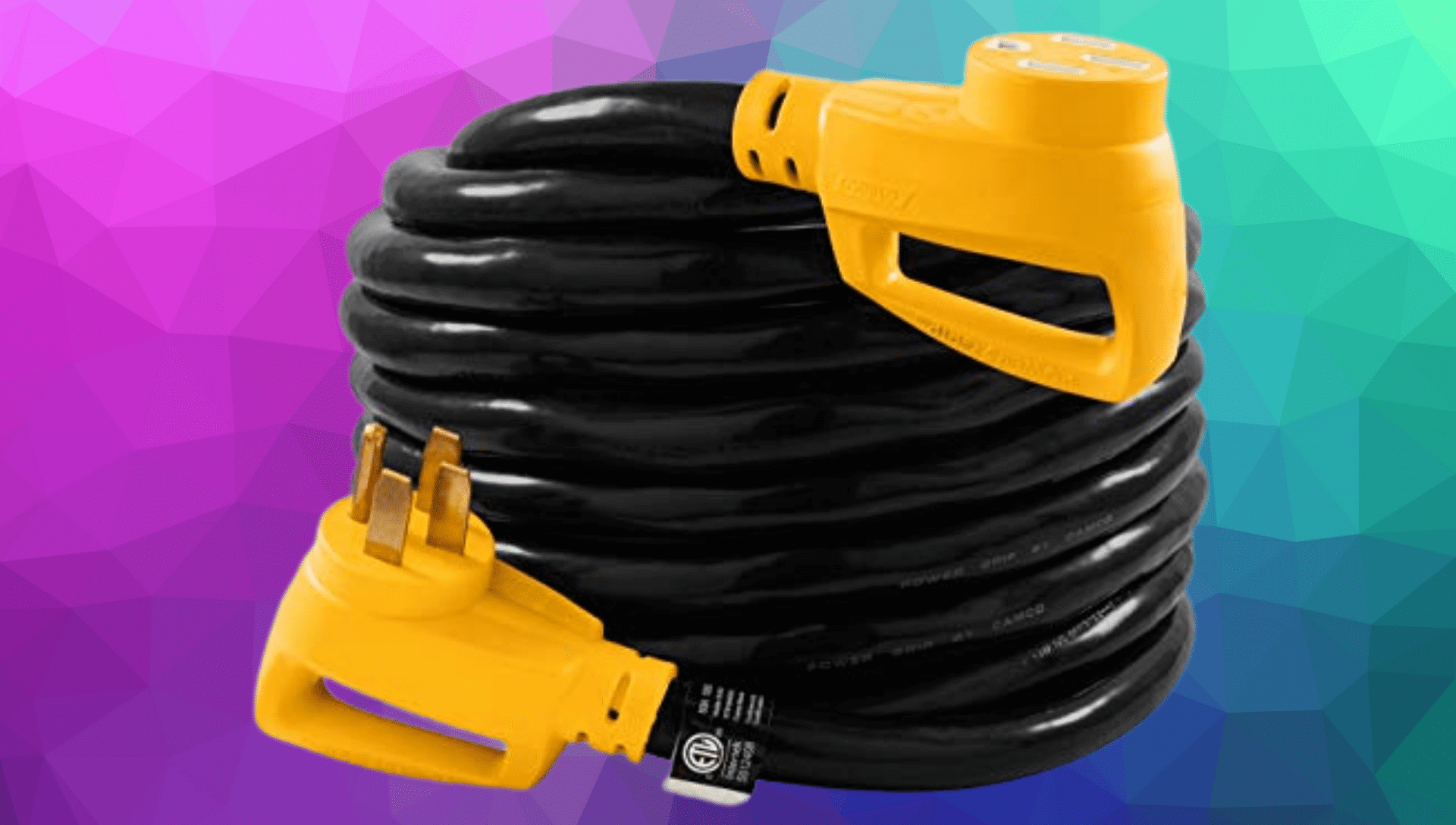
Do you consider the Andersen Ultimate 5th Wheel Hitch a “gooseneck” hitch. Because they do consider it a Gooseneck hitch, and it should in my opinion receive from you a different conversation.
It doesn’t require you to “saw a hole in your truck bed”.
It carries just as much weight and is just as stable as a “5th wheel hitch”.
You need to look into the Goose Box by Reese. It will not void the warranty of the Lippert frame. I am getting the 20k unit installed on my new solitude.